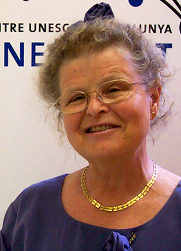Welcome to the website
of the movement for
Linguistic Human Rights
in the World
A place for
information, discussion
and action concerning
Linguistic Human Rights:
www.linguistic-rights.org
|
|
|
|
Lingvaj Rajtoj
Derechos Lingüísticos
الحقوق اللغوية
Droits Linguistiques
ЯЗЫКОВЫЕ ПРАВА
Linguistic Rights
语言权
언어권리
Sprachliche Rechte
Nyelvi jogok
حقوق زبانی
สิทธิทางภาษา
Diritti linguistici
Sproglige rettigheder
Jazyková práva
Taalrechten - taalrechtvaardigheid
. . .

|
Esperanto 1887-2012: 125 Years of
Rita IZSÁK
|
|||

"125 years of Esperanto"
It has always amazed me that many linguists and others seem to dismiss Esperanto as an alternative to today's international communication, without actually knowing (almost) anything about it. Of the world's planned languages Esperanto is today the most known and used. I see lots of benefits if people take it seriously.
|
|

|
العربية | Беларуская | বাংলা ভাষা | Dansk | Deutsch | English | Español | Esperanto | فارسی | Français | Gaeilge
ελληνικά | Bahasa Indonesia | Íslenska | 한국어 | Italiano | Magyar | Nederlands | Português | по-русски
Slovenčina | Српски | తెలుగు | Türkçe | Українська | 语言权
© 2008-2018 Agado por Lingvaj Rajtoj, UEA
Reguloj pri utiligo | Privateco | Leĝe | Kontakto
traduko | informado | retejmapo